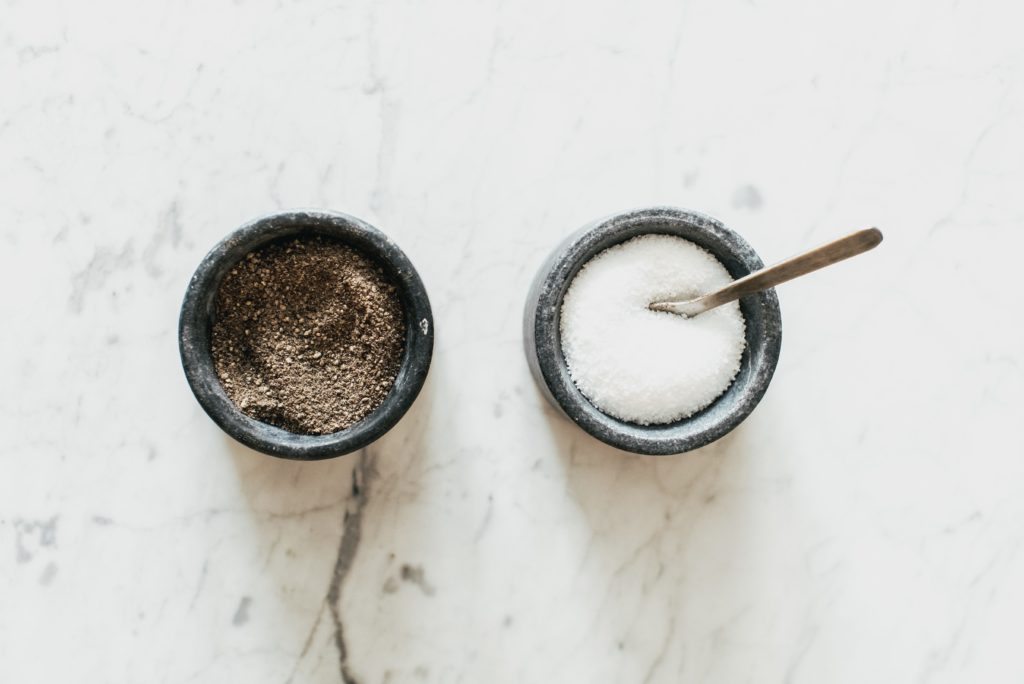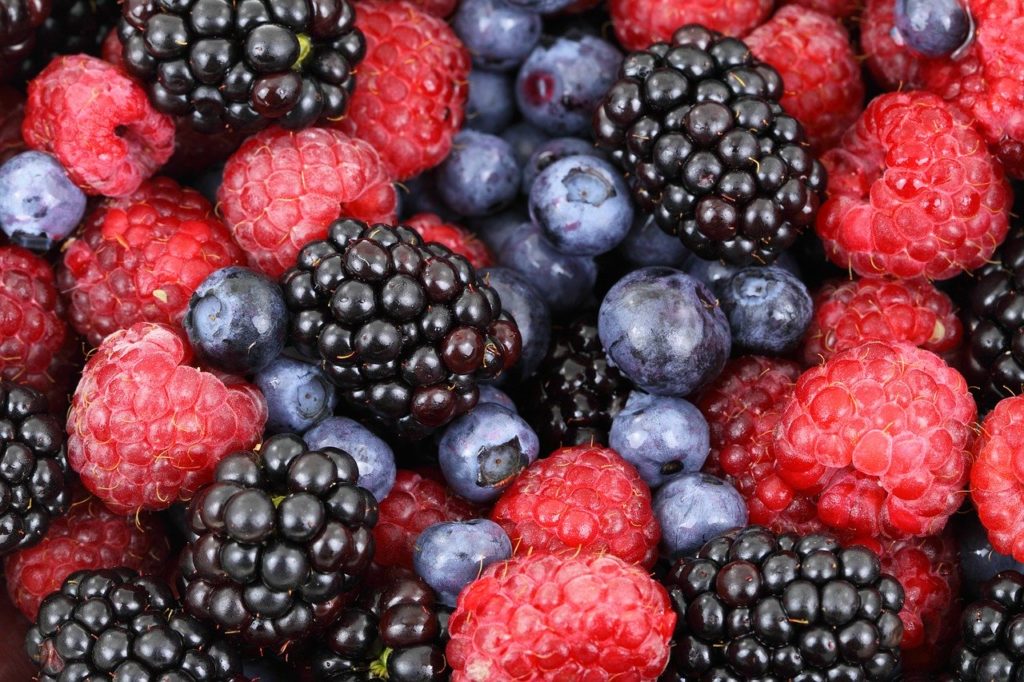Editor’s Note: this post is taken from Dr. Michael Gregor’s NYT best-selling book, “How Not to Diet.” As the New Year is underway, we’re doing a 10-part series on the latest evidence-backed ways to lose weight and keep it off.
“A plant-based diet is like a one-stop shop against chronic disease.”
– Michael Gregor, M.D. –
Main point: foods low in added sugars boost weight loss
A Genetic Predisposition for Sweetness
Have you ever found yourself scraping one last spoonful of Cherry Garcia from a Ben & Jerry’s pint of ice cream?
We’re genetically hardwired with an innate liking for the taste of sweet foods like ripe fruit, for example, and a sugar-induced subversion of some of our satiety mechanisms.
When we get hungry and eat, say, a granola bar, our desire for salty, fatty, and savory tastes diminishes as we slake our hunger, while our desire for sweetness is maintained.
Because fruit is sporadic and seasonal, an overfeeding response upon discovering a berry bush would have triggered our hunter-gatherer ancestors to eat as much as possible to store energy for later.
This predisposition for sweetness, even after consuming a decent amount of calories, may explain why we seem to grow a “second stomach” when it comes to dessert. We may turn up our noses at the last brussel sprouts on the plate, but when the chocolate cake arrives, it’s easy to fit a few bites in.

Effects of Added Sugar on Caloric Intake
Researchers have found sugar intake is associated with greater odds of obesity and greater waist size, stating “considering the rapid weight gain the that occurs after an increased intake of sugars, it seems reasonable to advise people to cut down.”
In recent years, much has been learned about this reinforcing effect of sugar and how it can promote overeating. We don’t just overeat on sugar because we like its taste.
Instead, innovations in brain scanning technology have shown the pleasure-generating reward circuitry in our brains overlaps with the neurocircuitry mediating the addictive properties of drugs like alcohol and opioids.
Sugar consumption has also been shown to inhibit anxiety-induced cortisol (stress hormone) secretion, helping to explain why many “comfort foods” are high in sugar and also why excessive sugar consumption may be such a difficult habit to break.
In other words, the brain has an addiction-like response to sugar consumption, becoming “hooked” on sugar and causing one to feel less stress when eating it.
Most of us tend to reach for a chocolate bar, iced soda, or even a cold pint of ice cream when we experience a stressful event like a breakup, traffic congestion, or work-day hassle.
This reaction makes sense, since consuming sugar will lower our cortisol levels. Knowing this, we can start to replace our intake of added sugar with other cortisol-lowering activities like a brisk walk, hot cup of tea, or brief meditation session.

Where to Go From Here
Tastebud Reset
It’s all about pressing the reset button. The average lifespan of a tastebud cell may only be about 250 hours. That means each of our tastebuds could get replaced every ten days or so.
These facts make sense because our tastebuds are constantly being assaulted by everything from burning hot liquids to normal everyday abrasion by our teeth, food, and the roofs of our mouths.
Though much of the change in taste perceptions is presumable higher up in our brains, it may be helpful to reflect that our tastebuds are basically reborn anew every few weeks, giving us another chance for a fresh start.
For those of us with a sweet tooth, a 14-Day Sugar-Free Challenge may be the answer.
Put people on a sugar-free challenge for two weeks, removing all added sugars and artificial sweeteners, and by the end of the trial, up to 95 percent said “sweet foods and drinks tasted sweeter or too sweet, and…said moving forward they would use less or even no sugar.”
To maximize your weight loss (and mental health and wellbeing), focus on engineering your diet to be low in added sugars.
- Eat fresh fruit with naturally occurring sugars to curb cravings for artificial sweeteners and added sugars.
- Take a walk, meditate, or sip some chamomile tea when feeling stressed, replacing stress-reducing, sugary foods with stress-reducing activities.
- Try a 14-Day Sugar Free challenge to reset your system. Find a friend to join in the challenge and reward yourself with a spa day, or even a golf trip, at the end!
Main point: choose foods low in added sugars to boost your weight loss
Question to Ponder
When am I most likely to eat foods high in sugar or artificial sweeteners? During these times, what can I substitute for these foods?
Resources

